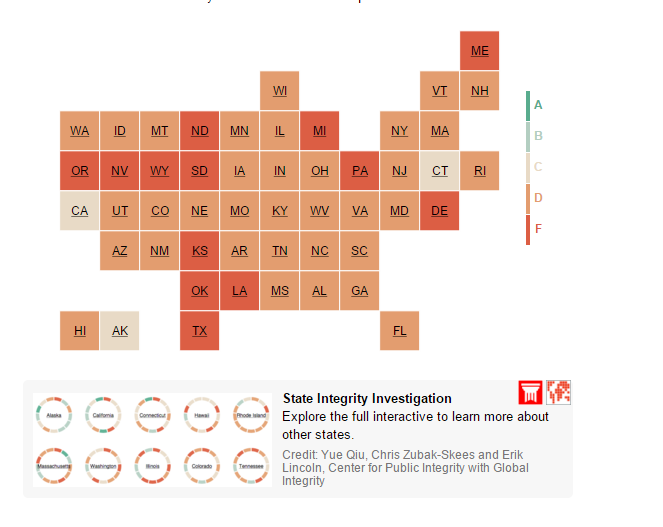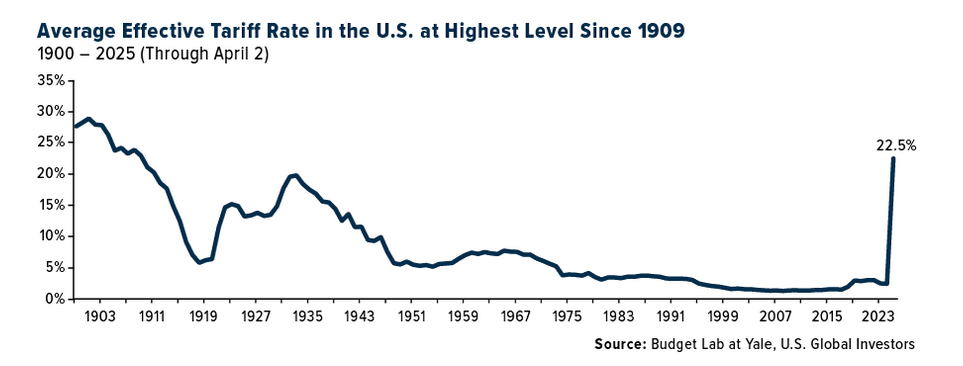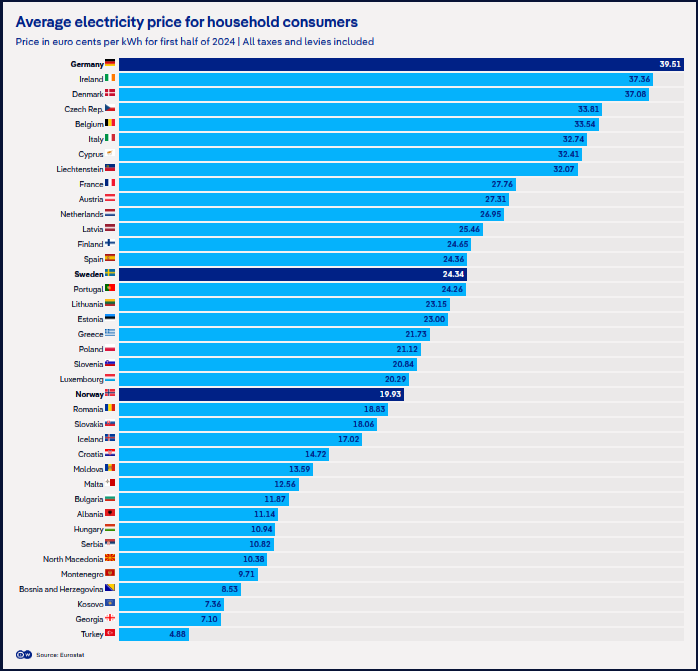According to a recently published report by The Center for Public Integrity, most US states rank poorly in integrity, ethics and corruption.This study was focused on only the state governments and not the Federal government.
Here is an excerpt from the investigative report:
In November 2014, Arkansas voters approved a ballot measure that, among other reforms, barred the state’s elected officials from accepting lobbyists’ gifts. But that hasn’t stopped influence peddlers from continuing to provide meals to lawmakers at the luxurious Capital Hotel or in top Little Rock eateries like the Brave New Restaurant; the prohibition does not apply to “food or drink available at a planned activity to which a specific governmental body is invited,” so lobbyists can buy meals so long as they invite an entire legislative committee.
Click to enlarge
Such loopholes are a common part of statehouse culture nationwide, according to the 2015 State Integrity Investigation, a data-driven assessment of state government by the Center for Public Integrity and Global Integrity. The comprehensive probe found that in state after state, open records laws are laced with exemptions and part-time legislators and agency officials engage in glaring conflicts of interests and cozy relationships with lobbyists. Meanwhile, feckless, understaffed watchdogs struggle to enforce laws as porous as honeycombs.
Take the Missouri lawmaker who introduced a bill this year — which passed despite a veto by the governor — to prohibit cities from banning plastic bags at grocery stores. The state representative cited concern for shoppers, but he also happens to be state director of the Missouri Grocers Association, and is just one of several lawmakers in the state who pushed bills that synced with their private interests.
Or the lobbyist who, despite a $50 cap on gifts to Idaho state lawmakers, spent $2,250 in 2013 to host a state senator and his wife at the annual Governors Cup charity golf tournament in Sun Valley; the prohibition does not apply to such lobbying largess as long as the money is not spent “in return for action” on a particular bill.
In Delaware, the Public Integrity Commission, which oversees lobbying and ethics laws for the executive branch there, has just two full-time employees. A2013 report by a special state prosecutor found that the agency was unable “to undertake any serious inquiry or investigation into potential wrongdoing.”
And in New Mexico, lawmakers passed a resolution in 2013 declaring that their emails are exempt from public records laws — a rule change that did not require the governor’s signature. “I think it’s up to me to decide if you can have my record,” one representative said.
Source: Only three states score higher than D+ in State Integrity Investigation; 11 flunk, The Center for Public Integrity
The full article is worth a read. You can find it here.




